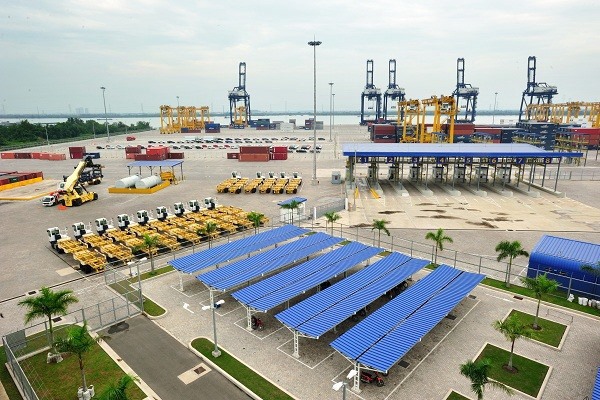Experts have recommended a number of measures to increase foreign direct investment (FDI) in HCM City’s export processing zones (EPZs) and industrial zones (IPs).

Experts have recommended a number of measures to increase foreign direct investment (FDI) in HCM City’s export processing zones (EPZs) and industrial zones (IPs).
Infrastructure in the EPZs and IPs, most of which were set up in the 1990s, has deteriorated, especially wastewater treatment facilities. A number of centralised wastewater treatment systems, for example, have been found in violation of environmental regulations.
In addition, many enterprises that want to expand their business face challenges as available land for rent in IPs and EPZs is limited and rental prices are too high compared to EPZs and IPs in neighbouring provinces.
Roads near EPZs and IZs are often overloaded, leading to higher production costs and reducing the competitiveness of enterprises.
Other problems include flooding and traffic congestion, which increases logistics costs for businesses.
A lack of investment in schools, accommodations and hospitals for workers in EPZs and IPs is another problem facing IPs and EPZs in HCM City.
The limited number of highly skilled staff for IT and management positions is an issue as well, while hiring of manual labourers can also be difficult, especially after the Lunar New Year (Tet) holiday when workers often do not return to their jobs, according to a representative of Saigon Precision Co., Ltd.
In addition, many enterprises in EPZs and IPs have not received their land-use right certificates, making it difficult for them to complete loan procedures so they can expand operations.
Solutions
Simplification of administrative procedures related to investment, labour and construction in the EPZs and IPs is needed to attract foreign investments in the areas, according to experts.
Improvement of the quality of workers’ life and working environment is necessary as well.
Nguyen Hoang Nang, head of the city’s Export Processing Zones and Industrial Parks Authority (Hepza), said the management board has been working with investors to improve technology and infrastructure in EPZs and IPs, including accommodation, schools and hospitals.
As many as 16 housing projects providing 21,417 accommodations for workers, and 21 pre-school projects for workers’children, have been proposed, he said.
Regarding the issue of land-use right certificates, the HCM City People’s Committee has asked the Department of Natural Resources and Environment to speed up the issuance of land-use right certificates for eligible enterprises in the EPZs and IPs.
Vu Minh Hung, director of environment, health, safety and sustainability at US-based First Solar, which makes semi-conductors, said companies must improve working conditions to retain and attract highly skilled employees.
HCM City has 17 EPZs and IPs covering a total area of more than 2,570 hectares. The city targets having 23 “green” and high-tech EPZs and IPs on an area of roughly 6,000 hectares by 2020.
The zones are expected to attract some $6-8 billion of investment capital during the 2016-2025 period.
Nang said the city would shift existing zones into green, clean and hi-tech ones by 2025 and develop new hi-tech zones for parts supply industries.
Priority would be given to current investors in hi-tech development, 4.0 industry technologies, and parts supply industries that generate high added value.
To lower land rentals, the city needs to improve the efficiency of land use and workers’ skills. Linkages with other zones in the southern region and other businesses in the city are also needed, experts said.
As of the end of last year, EPZs and IPs in the city had attracted $772.31 million, according to Hepza. However, foreign investment in the city’s EPZs and IPs were worth $290.83 million last year, a drop of 25.78 per cent over 2017.
Most projects were in technology-oriented industries, including food processing, chemical-rubber, mechanical, information technology, and the supporting industry. — VNS





